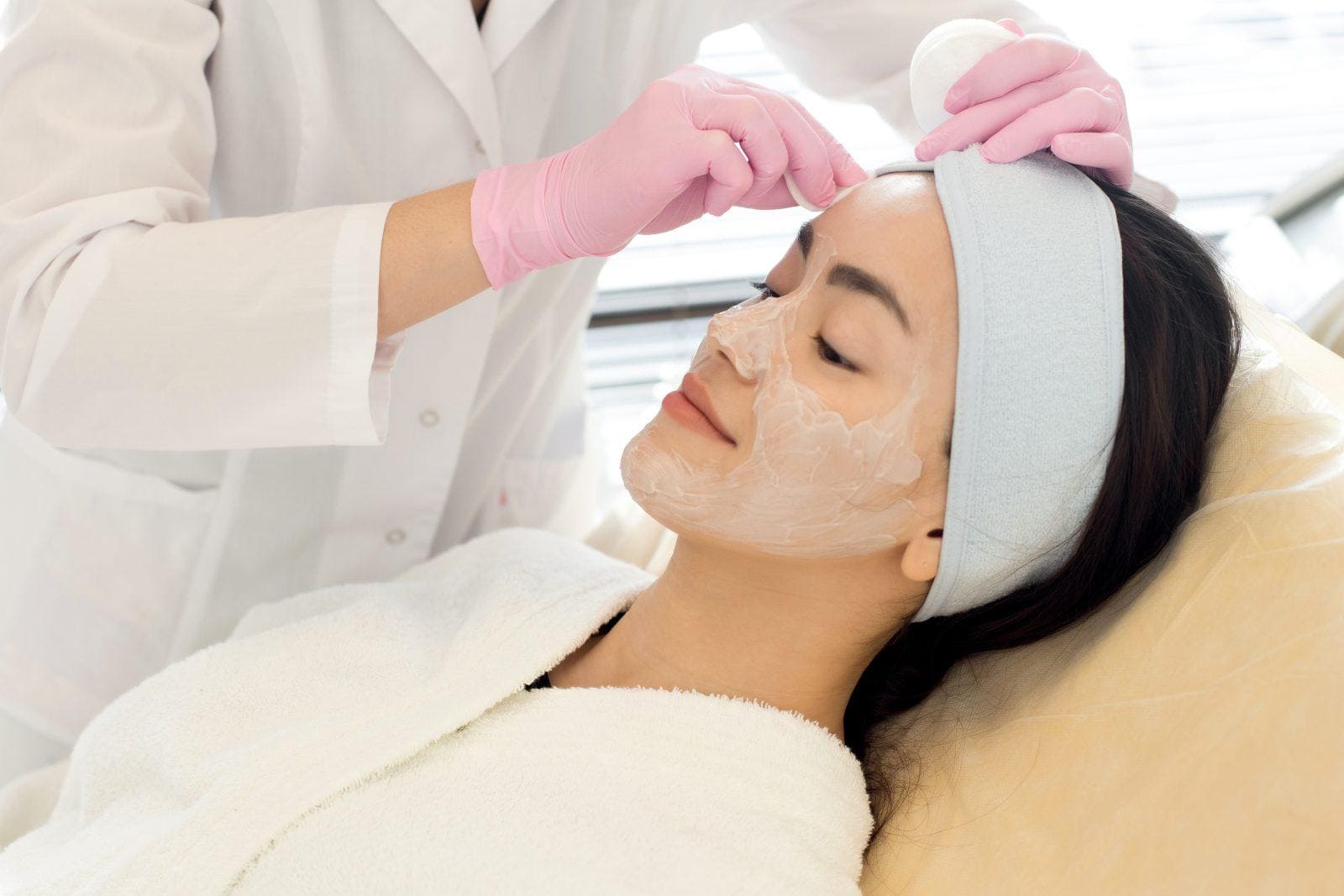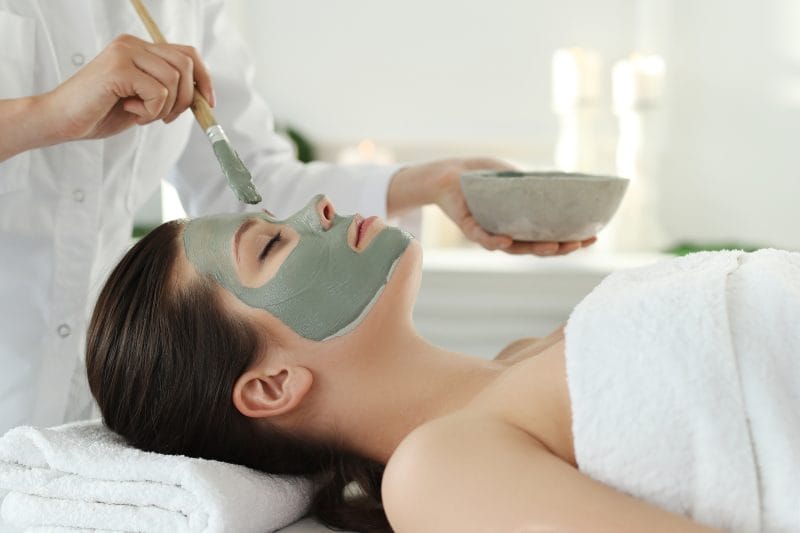Estheticians, Salon Biz, Skincare
How to rebuild or maintain your skin’s moisture barrier.
Your skin’s moisture barrier is an essential part of your overall skin health. It is responsible for keeping your skin hydrated and protected from external factors such as pollution, UV rays, and harsh weather conditions. A healthy moisture barrier leads to softer, smoother, and more radiant skin. However, due to various reasons such as age, environmental factors, and lifestyle choices, our skin’s moisture barrier can become damaged, leading to dryness, flakiness, and irritation. In this blog post, we will explore how to rebuild or maintain your skin’s moisture barrier to achieve healthy, glowing skin.
What is the Moisture Barrier?
The moisture barrier, also known as the stratum corneum or acid mantle, is a crucial layer of the skin that plays a significant role in keeping the skin hydrated and healthy. This outermost layer is made up of lipids, ceramides, and fatty acids that form a protective barrier on the skin’s surface, preventing moisture loss and keeping the skin hydrated.
When the moisture barrier is damaged, the skin loses its ability to retain moisture, leading to dryness, flakiness, and irritation. A damaged moisture barrier can also lead to inflammation and fine lines, making it important to repair it as soon as possible. It’s also important to be patient, as repairing the moisture barrier takes time.
Causes of Moisture Barrier Damage
Several factors can damage your skin’s moisture barrier, including:
- Harsh skincare products
- Cold weather
- Hot showers or baths
- Over-exfoliation
- Age
- Environmental pollutants
- UV radiation
- Certain medications
Signs of Moisture Barrier Damage
If you notice any of the following signs, it may indicate that your skin’s moisture barrier is damaged:
- Dry, itchy, or flaky skin
- Redness or irritation
- Sensitivity to skincare products
- Acne breakouts
- Premature signs of aging such as fine lines and wrinkles
- Uneven skin tone
How to Rebuild and Maintain Your Moisture Barrier
- Use a Gentle Cleanser
Harsh cleansers can strip away the natural oils from your skin, leading to moisture loss and damage to the moisture barrier. Instead, opt for a gentle, fragrance-free cleanser that doesn’t contain harsh surfactants such as sodium lauryl sulfate (SLS). Look for cleansers that contain nourishing ingredients such as ceramides, niacinamide, and hyaluronic acid.
- Avoid Hot Showers or Baths
Hot water can strip away your skin’s natural oils, leading to dryness and damage to the moisture barrier. Instead, take lukewarm showers or baths and limit your time in the water.
- Moisturize Daily
Daily moisturizing is crucial to maintaining your skin’s moisture barrier. Look for moisturizers that contain ingredients such as ceramides, fatty acids, and hyaluronic acid. These ingredients will help replenish the skin’s natural oils and lock in moisture. Apply your moisturizer immediately after showering or bathing to help seal in moisture.
- Protect Your Skin from the Sun
UV radiation can damage your skin’s moisture barrier, leading to premature signs of aging and increased sensitivity. Protect your skin by wearing sunscreen with an SPF of 30 or higher, even on cloudy days.
- Avoid Over-Exfoliation
Over-exfoliation can damage your skin’s moisture barrier, leading to dryness and irritation. Limit your exfoliation to once or twice a week and use a gentle exfoliator that doesn’t contain harsh scrubbing particles.
- Incorporate Niacinamide into Your Skincare Routine
Niacinamide is a form of vitamin B3 that has been shown to improve the skin’s moisture barrier. It helps to increase ceramide production, which strengthens the skin’s barrier function and reduces moisture loss. Look for skincare products that contain niacinamide, such as serums or moisturizers.
- Stay Hydrated
Drinking plenty of water is crucial to maintaining your skin’s moisture barrier. When your body is dehydrated, your skin can become dry and flaky. Aim to drink at least eight glasses of water a day to keep your skin hydrated from the inside out.
The best way to diagnose and treat a damaged moisture barrier
If you’re concerned you’ve damaged your moisture barrier or you’re showing the symptoms that you have – and you don’t know what to do next – it may be time to call upon professional help. That means either a trip to the dermatologist or a visit to your salon / spa to consult with a trained esthetician. Estheticians have many tools and options to help alleviate issues and to help jump start the healing.
Keep your moisture barrier healthy
Your skin’s moisture barrier is an essential part of achieving healthy, glowing skin. By following the tips outlined in this blog post, you can rebuild and maintain your skin’s moisture barrier, leading to softer, smoother, and more radiant skin. Remember to be gentle with your skin, avoid harsh products, and incorporate nourishing ingredients into your skincare routine. With the right approach, you can have healthy and beautiful skin for years to come.
Related Reading
- “Skin Barrier Function.” National Eczema Association
- “Moisturizers: Options for Softer Skin.” Mayo Clinic
- “Niacinamide: What It Is and How to Use It.” Healthline
- “Dry Skin: Overview.” American Academy of Dermatology Association
- “Sunscreen: How to Help Protect Your Skin from the Sun.” American Academy of Dermatology Association





